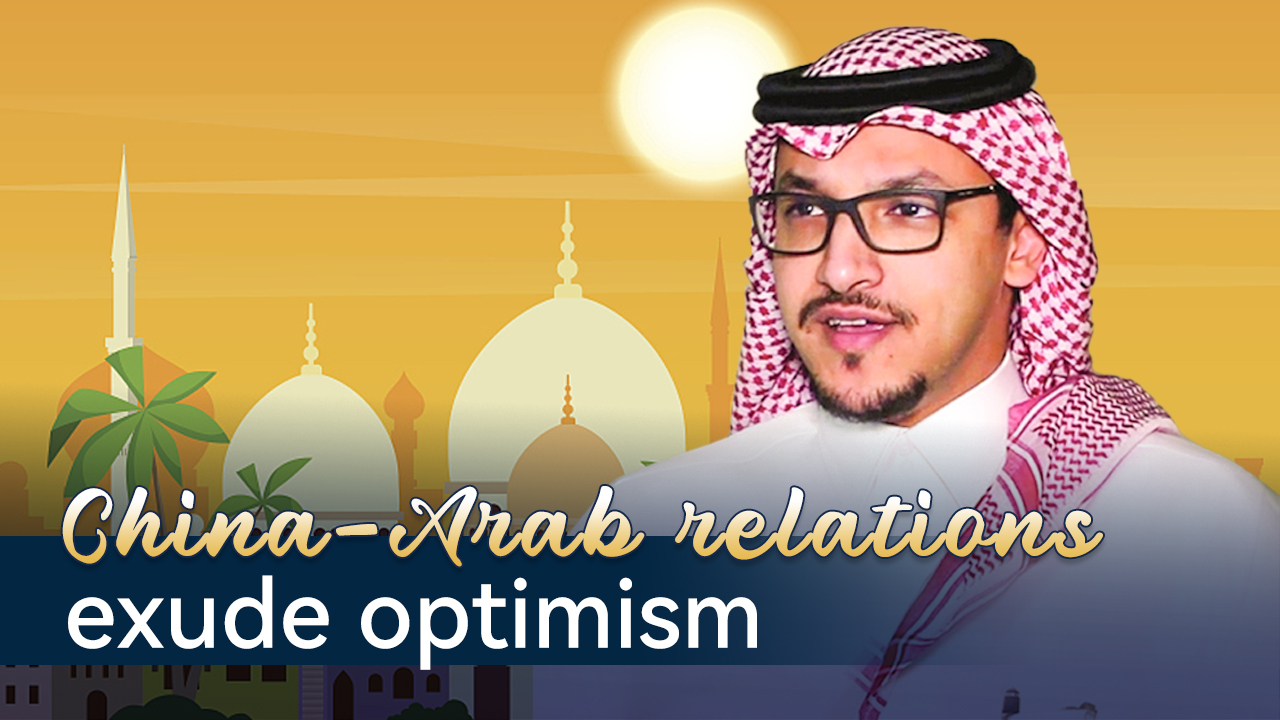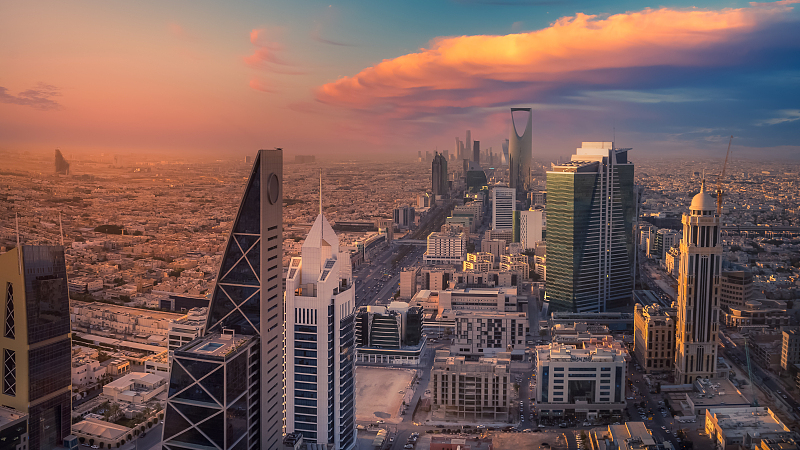08:51

Chinese President Xi Jinping's visit to Saudi Arabia, which included the high-powered China-Arab Summit and China-Gulf Cooperation Council (GCC) Summit besides the bilateral summit with the Saudi leadership, is being seen as an "epoch-making milestone in the history of China-Arab relations" by both sides.
Speaking to CGTN, a prominent Saudi political analyst and media commentator expressed optimism on the future of the Chinese-Arab relationship, hoping that President Xi's Saudi visit and his meetings with the Arab leadership will take the ties to a new level which will not only be beneficial for China and the Arab nations but also contribute to humanity and the global economy.
"All three summits are very important and crucial and came at a time when the world is going through massive changes and challenges," said Salman Al-Ansari, speaking via Zoom from Riyadh. To elucidate on how momentous Xi's visit and the three summits are regarded, he cited another noted Saudi academic Mohammed Al Sultan who has described the events as the "Summit of all Summits."
Following a spectacular and grand welcome reception on Thursday at Al Yamamah Palace in the capital Riyadh, Xi held bilateral talks with Saudi King Salman bin Abdulaziz Al Saud and Crown Prince and Prime Minister Mohammed bin Salman bin Abdulaziz Al Saud.
Describing the meeting as one between the Asian and the Arab giants, Al-Ansari stressed that China and Saudi Arabia have the potential and capabilities to change, develop and enhance the global economic map to serve the peoples of the two nations and the entire world. He also said that the Saudi-Chinese bilateral summit was focused on three aspects – strategic partnership, transfer of knowledge and technology, and strengthening partnership in the field of energy.
"The Kingdom is the world's largest energy exporter and China is the world's largest energy importer. And the relationship between the two countries is tremendously important to the global economy," he noted.
'China, a superpower we look up to and admire'
Al-Ansari revealed that over 20 preliminary agreements worth more than 110 billion Saudi riyals, or close to $30 billion, were signed on the sidelines of the Saudi-Chinese summit. An integration plan between Saudi Arabia's Vision 2030 and China's Belt and Road Initiative (BRI) was also agreed upon. He noted that Saudi Crown Prince Mohammed bin Salman has launched an award for cultural cooperation between the two countries. The deals and initiatives flow from the comprehensive strategic partnership that the two sides established in 2016.
"With the integration of BRI and Vision 2030, the two sides can build up a supply chain that can connect continents," said Al-Ansari highlighting Saudi Arabia's strategic advantage due to its location in a region that connects Asia, Africa and Europe. "As we all know, Riyadh is the gateway to the Middle East and the gateway to the Arab and Muslim world. And China acknowledges the importance of Riyadh, regionally and globally."

A view of the skyline of Riyadh, capital of Saudi Arabia. /CFP
A view of the skyline of Riyadh, capital of Saudi Arabia. /CFP
Al-Ansari also said that China and the Arab world have mutual admiration for each other. "Definitely China is today a superpower that we look up to and we admire, and we have a lot in common," he said while extending congratulations to the Chinese nation and people for the historical successes achieved in recent years. "This would not have been possible without the vision and wisdom of the wise leadership of President Xi Jinping," he added.
Civilizational linkages boost future prospects
China has historic and friendly ties with the Arab world. The exchanges between China and Arab states date back more than 2,000 years. In a signed article published Thursday in the Saudi newspaper Al Riyadh, President Xi underlined that "China will work with Arab states to carry forward the traditional friendship and jointly build a China-Arab community with a shared future in the new era."
Al-Ansari said the vision has been welcomed by the Arab countries and people, who relate with the historic civilizational linkages with China. "The Chinese and the Arabs represent two of the most important human civilizations," he said.
"There are many commonalities between the Chinese and the Arab societies, both of which are collectivistic societies that value the concept of family and respect for the elders. And both societies, the Arab and the Chinese, are well-established with an ancient history and great human civilizations," he added.
Papermaking and Chinese-Arab cooperation
Al-Ansari also cited an anecdote on how the Arabs contributed to spreading the Chinese invention of paper to the West. Paper was invented in China around the first century.
It is well documented how the Arab merchants traveling through the Silk Road learned the art of making paper from the Chinese and built the first paper industry in Baghdad in 793 CE. Subsequently, the Arab traders brought the knowledge of papermaking to the West in the 8th century.
"Science, knowledge and libraries spread throughout the world due to the Chinese-Arab cooperation," remarked the Saudi analyst. With a philosophical note, Al-Ansari saw the current summits in Riyadh as "a continuation of what our ancestors started centuries ago by serving humanity through cooperation in all fields."
Text and interviewer: Abhishek G Bhaya
Video editor: Zhang Yu
Cover image: Li Yueyun
Senior producers: Bi Jianlu, Zhang Peijin and Wang Xinyan
Chief editor: Li Shouen
(If you want to contribute and have specific expertise, please contact us at opinions@cgtn.com. Follow @thouse_opinions on Twitter to discover the latest commentaries on CGTN Opinion section.)